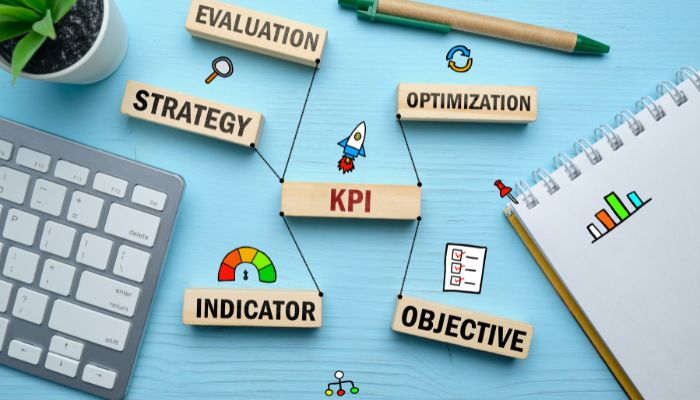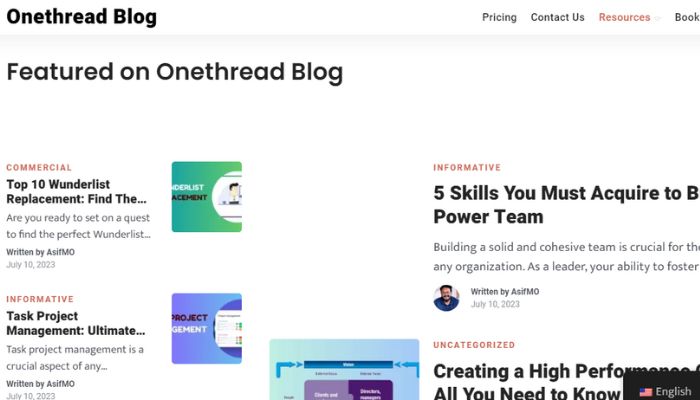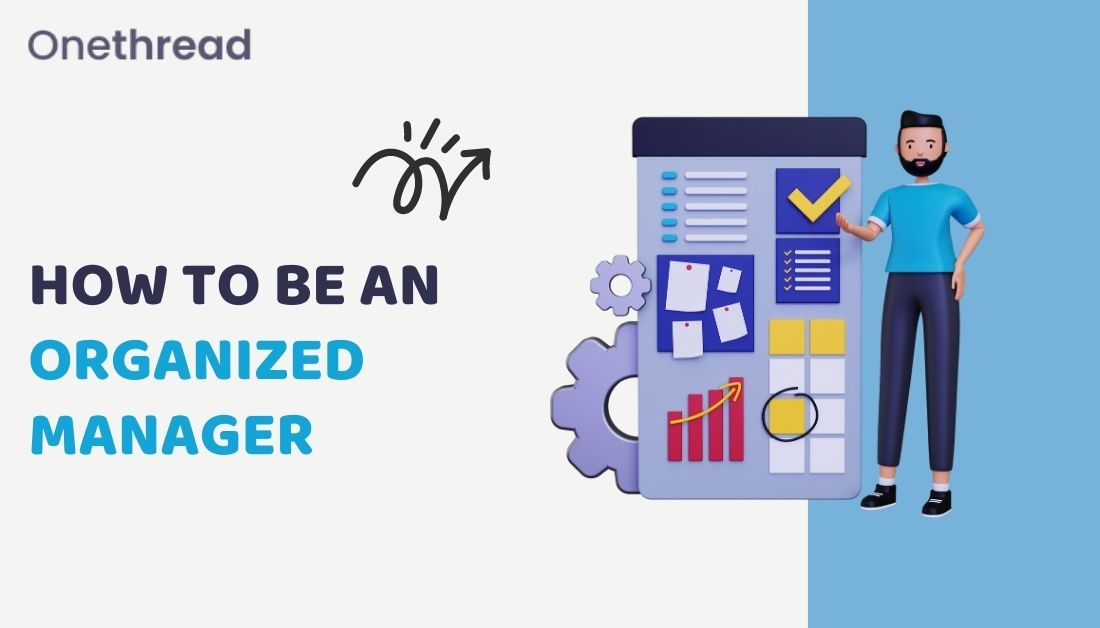Have you ever encountered that one manager who effortlessly juggles multiple tasks, stays on top of deadlines, and maintains a calm and collected demeanor? You wonder, “How do they do it?”
Well, the secret lies in the power of organizational skills. Being an organized manager is not just about color-coded calendars and perfectly labeled folders; it’s a mindset, a way of approaching work that breeds efficiency and success.
In today’s fast-paced corporate world, where demands and expectations seem to grow exponentially, staying organized has become paramount. As a manager, navigating the complexities of leading a team while keeping productivity going smoothly becomes even more crucial.
In this article, we will explore the art of becoming an organized manager, exploring the strategies, techniques, and habits that can transform your managerial journey. Discover the practical tips, time management strategies, and task prioritization techniques that will empower you to survive and thrive amidst the daily challenges.
Are you ready to unlock the secrets of exceptional organizational skills? Let’s embark on this transformative journey together.
Understanding the Role of an Organized Manager

The phrase “organized manager” is often tossed around in the dynamic management realm. But what does it truly mean to embody this role?
An organized manager can orchestrate a symphony of tasks, people, and resources with precision and finesse. They are the conductor, ensuring that each instrument plays its part flawlessly, resulting in a harmonious and productive work environment.
Organizational skills in a managerial role go beyond mere tidiness or neatness. They encompass the art of planning, prioritizing, and executing tasks efficiently.
From creating well-defined workflows to establishing clear communication channels, an organized manager lays the foundation for success. They understand the power of structure and leverage it to streamline processes, minimize errors, and maximize productivity.
Impact of Being an organized manager on team productivity and Performance
Picture this: A perpetually disorganized manager drowning in uncompleted tasks and struggling to meet deadlines. The team members feel confused, demotivated, and uncertain about their responsibilities.
On the other hand, an organized manager brings fresh air into the workplace, catalyzing a positive ripple effect on team productivity and performance.
A manager’s organizational skills create a ripple effect on the entire team. By setting clear expectations, establishing efficient systems, and providing the necessary resources, an organized manager creates an environment conducive to high productivity.
Furthermore, the impact of an organized manager extends beyond just task completion. It influences the work culture, fostering a sense of discipline, accountability, and professionalism. A manager modeling effective organization inspires their team, encouraging them to adopt similar practices and habits.
Key Principles of Being an Organized Manager

Develop Organizational Habits
As an aspiring organized manager, incorporating certain habits into your routine can make all the difference.
Here are some tips for developing organizational habits as an organized manager:
- Start by decluttering your physical and digital spaces and creating a clean canvas for productivity.
- Embrace the power of to-do lists and prioritize tasks based on urgency and importance.
- Implement a systematic filing system to ensure easy retrieval of documents.
- Foster discipline in time management by setting realistic deadlines and sticking to them.
Remember, consistency is vital when it comes to developing organizational habits.
Techniques for Managing Organization
Managing an organization requires more than wishful thinking—it demands actionable techniques, some of which are-
- Consider utilizing productivity tools and software (Think of Onethread!) to help you streamline processes, track tasks, and collaborate effectively.
- Embrace the Pomodoro Technique to enhance focus and minimize distractions.
- Learn to delegate tasks and empower your team members to take ownership.
- Explore time-blocking as a strategy to allocate dedicated time for specific activities.
By implementing these techniques, you can cultivate a culture of organization within your managerial domain.
Be A Time Management Pro! (Because Time is Money!)
Time management lies at the core of organizational prowess. Here are the steps that we suggest you follow to be a pro at time management:
- Begin by analyzing your work patterns and identifying areas of improvement.
- Set clear goals and break them down into manageable tasks, allotting specific time slots for each.
- Avoid multitasking and focus on one task at a time to enhance efficiency.
- Prioritize tasks based on urgency and impact, promptly addressing crucial assignments.
- Embrace automation and delegation to optimize time utilization.
With these steps, you can become a more organized and effective manager.
Time Management Techniques for Managers
Time is a finite resource, and effective time management is essential for managers. To be a successful manager, here are a few of our tested techniques:
- Discover the power of scheduling and planning by creating a well-structured calendar.
- Set aside dedicated time for strategic thinking, team collaboration, and personal development.
- Learn to say “no” to non-essential tasks that can derail your focus.
- Embrace technology tools that aid in time tracking, reminders, and task management (Onethread is just the right tool for that!).
By mastering the art of time management, you can enhance your productivity and achieve a better work-life balance.
Manage Task and Priority

As a manager, juggling multiple tasks and priorities is a daily challenge, which can be solved using the following steps:
- Start by assessing the urgency and importance of each task to allocate your attention effectively.
- Break down complex projects into smaller, manageable sub-tasks, enabling you to tackle them systematically.
- Consider using project management tools that facilitate task tracking, collaboration, and deadline management (All of which can be done using Onethread).
- Regularly reassess priorities as new information emerges, ensuring your focus remains aligned with your team’s and organizations evolving needs.
Balance Multiple Responsibilities
Being a manager often means wearing multiple hats and balancing diverse responsibilities. Effective organization plays a crucial role in maintaining equilibrium and you can get started using the following tips:
- Delegate tasks to capable team members, empowering them and freeing up your bandwidth.
- Set realistic expectations and communicate openly with your team about workload and priorities.
- Embrace agile project management principles to adapt swiftly to changing circumstances.
By striking the right balance and leveraging your organizational skills, you can excel in managing multiple responsibilities as a manager.
Structure Your Work
Structure is the backbone of organizational success. To structure your work as a manager, follow these steps:
- Start by defining transparent workflows and processes that align with the goals and objectives of your team.
- Create standardized templates and guidelines for routine tasks, enabling efficiency and consistency.
- Explore the benefits of agile methodologies to foster adaptability and flexibility in your work structure.
- Communicate the structure effectively to your team, providing clarity and direction.
With a well-structured approach, you can navigate complexities and achieve optimal outcomes.
Pro tip: With Onethread, you can structure, create and assign tasks, set deadlines, and build processes that take your management a long way!
Streamline Your Processes
Streamlining processes is vital to eliminate bottlenecks and enhance productivity. To streamline your processes, these steps can help you get everything flowing:
- Conduct process audits to identify inefficiencies and areas for improvement.
- Leverage automation and technology solutions to streamline repetitive tasks and reduce manual errors (Onethread should be your go-to automation tool).
- Foster a culture of continuous improvement, encouraging feedback and ideas from your team.
- Regularly evaluate and refine processes based on data and insights.
By optimizing workflows and eliminating unnecessary steps, you can unlock the full potential of your team and drive more remarkable results.
Be a Communication Bee (You don’t need to be an extrovert)
Effective communication and collaboration are pillars of the managerial organization. To become a pro at communication, you do not need to be an extrovert; you just need to get a few things in place first. Here are the steps that we suggest:
- Establish open communication channels, both vertically and horizontally, to foster transparency and trust.
- Encourage regular team meetings and one-on-one discussions to align goals and expectations.
- Embrace active listening and empathy to ensure adequate comprehension and promptly address potential conflicts.
- Invest in tools and platforms that facilitate seamless collaboration and knowledge sharing (Onethread is your right hand to get this in action).
By implementing these strategies, you can enhance the overall organizational effectiveness of your managerial role.
Optimize Your Digital Workspace

Beyond physical organization, digital organization plays a pivotal role in modern work environments. But, digital organization steps are very different from organizing physical space. Here are the steps that we suggest you follow:
- Utilize folders and subfolders to categorize digital files, ensuring easy access and preventing clutter.
- Leverage productivity apps and project management tools to streamline workflows and track progress.
- Implement effective email management strategies, such as inbox zero or labeling systems, to maintain a tidy and manageable inbox.
- Explore digital collaboration platforms to centralize communication and document sharing.
By optimizing both your physical and digital workspace, you can enhance your efficiency and create a conducive environment for success.
How Onethread Makes You An Organized Manager

Throughout this article, delegation, communication, task and priority management, structuring and streamlining your processes, and Optimization have come up repeatedly. In today’s digital era, you are missing out on productivity if you are not taking full advantage of the available software and tools.
Onethread is an all-in-one tool that can help you achieve the dream of being an organized manager. Here are the features of Onethread that will help you get there:
- Onethread has a three-layered management- Company, Project, and Item. Your task will be structured and streamlined- just like a breeze.
- Onethread’s companywide announcement features will ensure everyone in your team is on the same boat.
- With Onethread, you can manage your vendors, ensuring you are not worried about your external communication while doing other important tasks.
- The centralized documentation and wiki feature of Onethread will ensure proper knowledge management for your team, streamlining your process like nothing else.
With all these tools and features, Onethread is an all-in-one tool that will make you an organized manager. But unlike many other project management tools, Onethread has a straightforward learning curve, making it easy to onboard.
Developing Long-Term Organizational Skills
Organizational skills are not static; they require continuous improvement and development. One effective strategy is setting clear goals and objectives, breaking them into actionable steps, and regularly reviewing progress.
Develop routines and habits that support organization, such as daily planning sessions or weekly decluttering sessions. Seek feedback from colleagues or mentors to gain insights into areas for improvement.
Invest in personal development resources like books, courses, or workshops on time management, prioritization, and effective organization. By prioritizing developing long-term organizational skills, managers can enhance their effectiveness and adaptability in dynamic work environments.
Overcoming Challenges Faced by Organized Managers
Despite our best efforts, challenges to the managerial organization can arise. Common obstacles include-
- Overwhelming workloads
- Frequent interruptions
- Conflicting priorities
- Poor time management.
To maintain organizational efficiency, managers can employ various solutions. Throughout this article, effective delegation and proper task allocation have come up multiple times. These are the aspects that can help distribute workloads and prevent overwhelm.
Implementing time management techniques, such as the Pomodoro Technique or time blocking, can enhance focus and productivity. Regularly reassessing priorities and adjusting schedules accordingly ensures important tasks receive due attention.
Additionally, cultivating open communication and setting boundaries can minimize interruptions and foster a productive work environment. By proactively addressing challenges, managers can sustain their organizational effectiveness.
Benefits of Being an Organized Manager
The benefits of being an organized manager extend beyond personal productivity. Organizational skills contribute to improved decision-making, as readily available organized information allows for more informed choices.
Effective organization enhances team collaboration and communication, as clear structures and processes facilitate seamless workflow and coordination. Moreover, being an organized manager instills confidence and trust among team members and stakeholders, positioning you as a reliable and efficient leader.
Ultimately, the benefits of organizational skills positively impact team performance, project outcomes, and overall managerial success.
Conclusion
In conclusion, being an organized manager is a game-changer in today’s fast-paced and demanding work environment. By mastering the art of organization, you can streamline your tasks, optimize productivity, and create a harmonious work environment.
Remember, as Peter Drucker once said,
“Efficiency is doing things right; effectiveness is doing the right things.”
So, embrace organizational skills, invest in continuous improvement, and unlock your full managerial potential. Get organized, stay focused, and lead your team to success.
